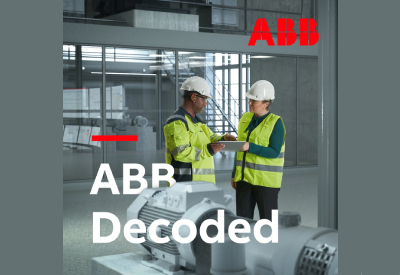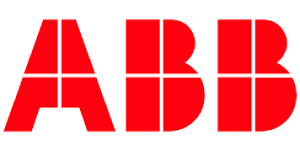Applying Energy-Efficient Solutions to Electric Motors Is One of The Biggest Tickets to Save Energy” – Podcast with ABB’s Adrian Guggisberg

June 28, 2022
Electric motors are ubiquitous, powering heavy industrial machineries to everyday household appliances. Nearly half of the world’s electricity is used in powering electric motors, many of which are running with poor efficiency. In the latest episode of ABB Decoded podcast, Adrian Guggisberg, President of ABB’s Motion Services division, discusses how a significant amount of energy can be saved by applying digital technologies to the installed base.
Guggisberg highlights the benefits of using renewable energy to tackle climate change but also points out as more combustion engines go electric, the energy supply will not be enough to meet demand. Industries must save energy and use it efficiently, Guggisberg explains.
There are more than 300 million motors installed around the world. The amount of energy saved by applying latest technologies would eliminate the need for around one third of coal fired power plants globally.
Digital solutions driving better decisions
The podcast explores how industries can benefit from data and expertise enabled by just plugging a sensor on motors, which can then be connected digitally. “If we can do that at a very low cost and in a very simple way, we will be able to scale up the solutions and really start to apply the solutions on many motors,” Guggisberg explained.
With digital solutions, industries can increase transparency. “When one wants to change something, it starts with transparency. Digital enables us to get much better transparency. It helps us make better decisions and reduce the need for physical presence, which increases the speed of how we can do things,” Guggisberg added.
He also explains how transparency in energy consumption of certain applications can help industries become more energy efficient.
Meeting future expectations
Guggisberg also addresses the need for partnerships for companies to achieve their future targets. In response to the global climate challenge, industries have set ambitious sustainability and carbon neutrality targets. A key part of ABB’s 2030 sustainability strategy is to support customers and suppliers to reduce their emissions and achieve carbon neutrality in ABB’s own operations by 2030.
Previously, companies would have only one objective when adopting digital solutions, which could be operating at a lower cost. Today, industries have multiple goals, including lower costs, reduced carbon emissions and reducing waste in a circular way, and balancing to achieve these goals will require part-nerships, he explains.

“The next step of the partnerships is really also towards changing a bit of the business model. We are going more towards an outcome-based type of business model where we, as a provider of the solutions, guarantee even an outcome,” he said.
Energy efficiency innovations
Several ABB technologies are already helping companies recognize the potential of energy efficiency. Guggisberg shares an example of ABB’s recently launched ABB AbilityTM Digital Powertrain Energy Appraisal.
“It is basically something which is using the same data as we use for asset health management, but it is based on data that can give an insight view of the potential energy savings on an application or on a solution if we would upgrade to the latest technology,” Guggisberg explained.
In its pilot phase, the solution helped a customer discover 10 applications with the highest potential to save energy by upgrading to the latest technology. These upgrades will enable the customer to save energy costs and reduce emissions as well. The return of investment of such a solution will be achieved in between one and two years.





